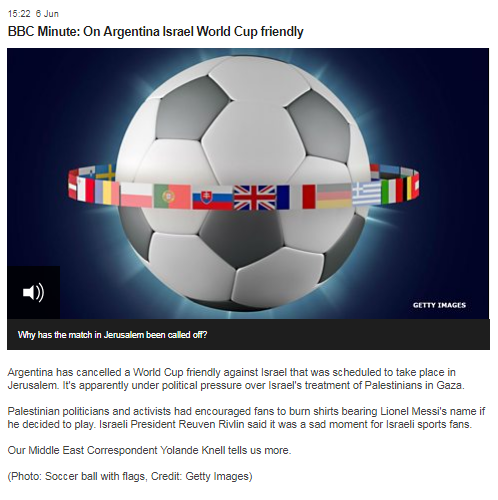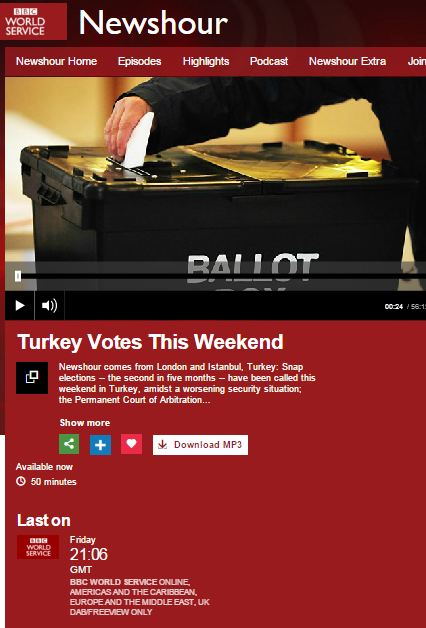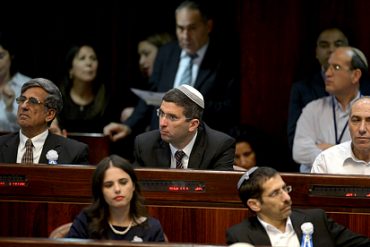On June 20th an article by Rushdi Abu Alouf of the BBC’s Gaza bureau appeared in the ‘Features’ section of the BBC News website’s Middle East page under the title “Gazans squeezed by triple taxes as Hamas replaces lost income“.
The article relates to a story which broke two months ago when Hamas once again announced a rise in import tax under the ‘National Solidarity Tax law’. Abu Alouf correctly reports that:
“The movement [Hamas] says funds will be used to pay its 40,000 civil servants, who have not received regular full salaries in more than two years.”
However, he does not clarify to readers that salaries for those 40,000 Hamas employees have been an issue ever since the announcement of the Hamas-Fatah ‘unity government’ over two years ago. As the Times of Israel explained at the time:
“The PA has been paying monthly salaries to nearly 70,000 public servants in Gaza despite the fact that the workers had not been allowed to serve in their positions since Hamas took over the Strip by force in 2007.
On its part, Hamas has employed 40,000 of its own civil servants to work in the PA employees’ stead.”
The Palestinian Authority refused to pay Hamas’ 40,000 employees and, as readers may recall, payment of those salaries appeared among the demands laid down by Hamas as conditions for halting the conflict with Israel which it initiated in the summer of 2014.
Abu Alouf’s explanation for why Hamas does not have the funds to pay those ‘civil servants’ focuses on the terror organisation’s alleged reduction in income.
“Iran provided significant financial and military aid to Hamas from early 2006 – amounting to $23m a month, according to Palestinian political analyst Fathi Sabbah.
But Tehran, the main backer of Syrian President Bashar al-Assad, dramatically reduced its support in early 2012, when Hamas refused to take sides in the Syrian civil war.
The movement also lost about $10m a month, said Mr Sabbah, when Egypt’s Islamist President Mohammed Morsi was overthrown in 2013. […]
After Mr Morsi was ousted, Hamas lost a second key source of income when Egyptian forces destroyed tunnels it said were used by militants to smuggle weapons into Sinai.
Hamas used to make millions of dollars from taxes it imposed on goods brought through the tunnels.”
On the topic of Hamas’ expenditure, Abu Alouf has just this to say:
“An unknown amount of money is spent by Hamas on weapons and military infrastructure, but this too is under pressure.”
Hamas has of course made no secret of its efforts to rehabilitate its military capabilities since the 2014 ceasefire came into effect.
“There are those who think that the calm is a time of rest,” Haniyeh said. “But this is a continuation of the struggle. Al-Aqsa Martyrs’ Brigades are working and preparing for Palestine. Fighters are digging twice as much as the number of tunnels dug in Vietnam,” he said.
“In east Gaza there are heroes digging tunnels under the ground and in the west there are those testing rockets. The Al-Aqsa Martyrs’ Brigades are digging tunnels to defend Gaza and turn it into a launch pad for all of Palestine,” Haniyeh added.”
Hamas’ policy has of course resulted in the misappropriation of thousands of tons of building materials intended for the repair and reconstruction of civilian homes damaged during the 2014 conflict (a topic severely under-reported by the BBC). It has also meant the spending of millions of dollars on tunnel construction rather than on public services for the impoverished residents of the Gaza Strip. In 2015 Israeli intelligence estimated that:
“Today, due to rising prices, the annual cost [of tunnel building] is estimated to be at least 18-20 million USD — or approximately 50% of the budget of Hamas’s military wing. Indeed, the total annual cost is likely even higher, as IDF intelligence confirms that there are additional expenditures that cannot currently be quantified.”
However, Rushdi Abu Alouf ignores that core issue of Hamas’ financial mismanagement, preferring to focus audience attentions elsewhere.
“It [Hamas] has also faced a crippling blockade by Israel and Egypt and financial sanctions from other countries since it won Palestinian elections in 2006.”
“And Hamas’s financial crisis is unlikely to be solved soon with Israel and Egypt continuing their border closures amid fear of attack by militants from Gaza.”
Any objective portrayal of Hamas’ “financial crisis” could not ignore the fact that the terror organisation’s prioritisation of rearmament and tunnel building plays a key role in the creation of economic and social pressures on ordinary residents of the Gaza Strip. The Gaza representative of the media organisation committed to enhancing “awareness and understanding of international issues” has however managed to completely conceal that decidedly large elephant in the room.




